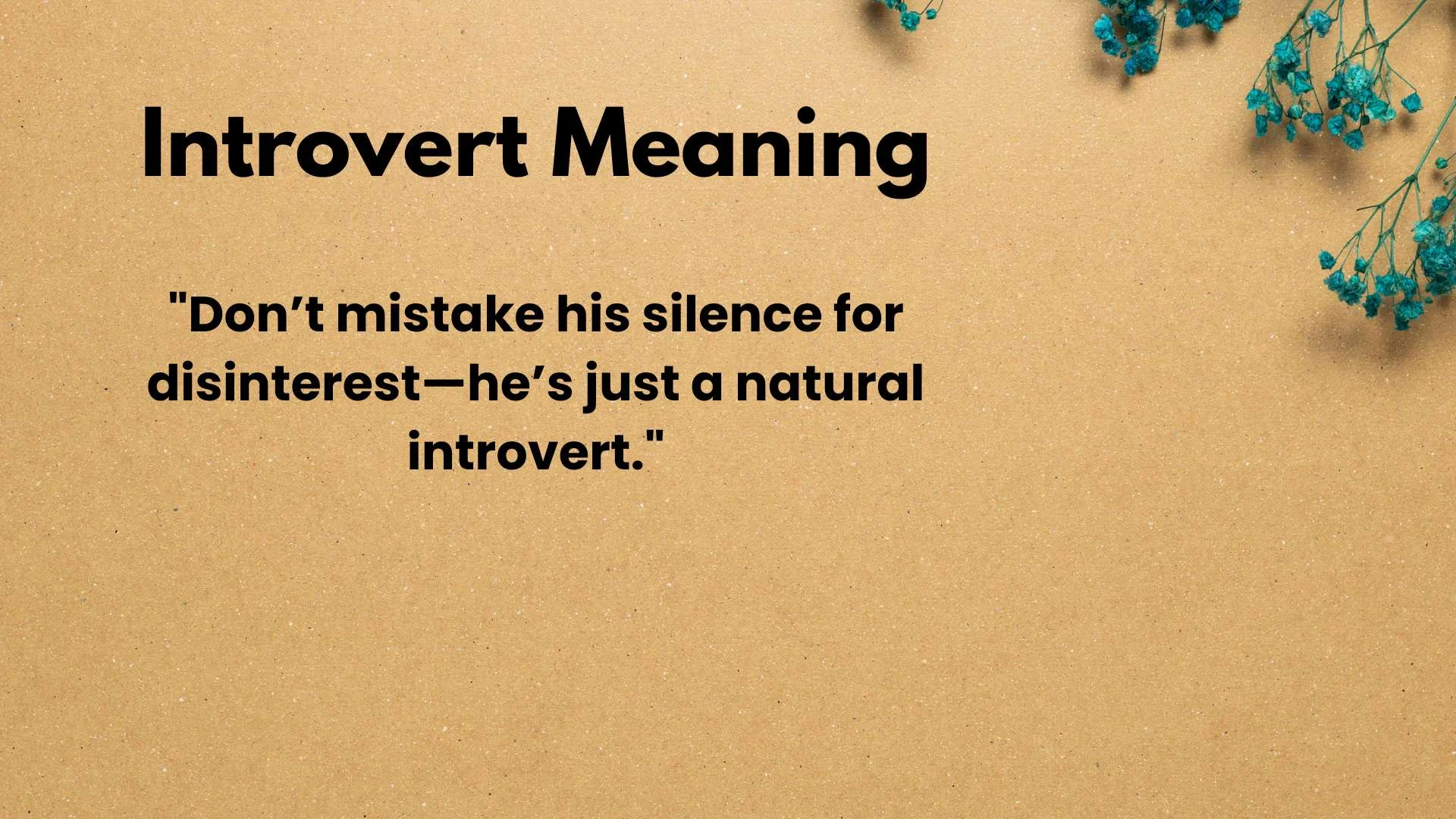Introvert is a word that gets thrown around often, but its real meaning is deeper and more nuanced than most people realize. In 2025, as mental wellness, workplace diversity, and personality-based optimization become even more significant in social and corporate contexts, understanding what being an introvert truly means is more important than ever.
In this comprehensive guide, we’ll break down the meaning of introvert, explore its modern definitions, unpack synonyms and related terms, and provide 10 professionally written examples to demonstrate how to use this word appropriately in various contexts.
We’ll also explore what the word “stand for” in text and messages and help you identify when and how to substitute it depending on tone—casual, polite, or professional.
What Does Introvert Mean?
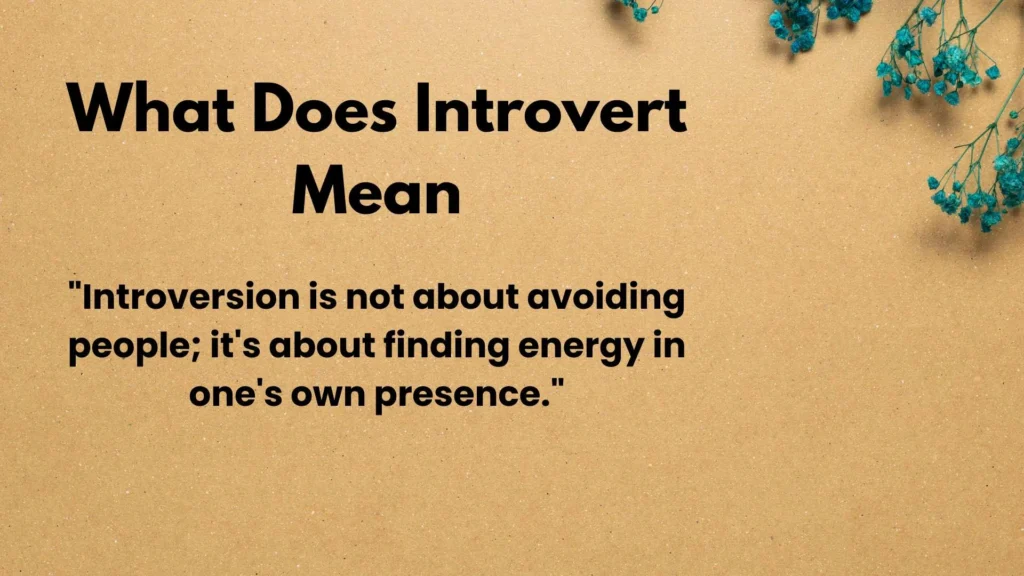
At its core, an introvert is someone who tends to be more focused on their internal thoughts and feelings rather than seeking external stimulation. Unlike extroverts, who gain energy from social interactions, introverts recharge by spending time alone.
But that’s only scratching the surface. In modern psychological terms, being an introvert doesn’t mean being antisocial or shy. Instead, introverts simply prefer meaningful, one-on-one interactions over large groups, and need solitude to function at their best.
“Introversion is not about avoiding people; it’s about finding energy in one’s own presence.”
2025 Definition of Introvert (Updated for Contextual Relevance):
Introvert (noun): A person whose energy and creativity are fueled by solitude and reflection, often preferring deeper interactions over broad social engagement. In 2025, introverts are recognized for their focused work ethic, emotional intelligence, and ability to thrive in calm, controlled environments.
What Does Introvert Stand For in Text?
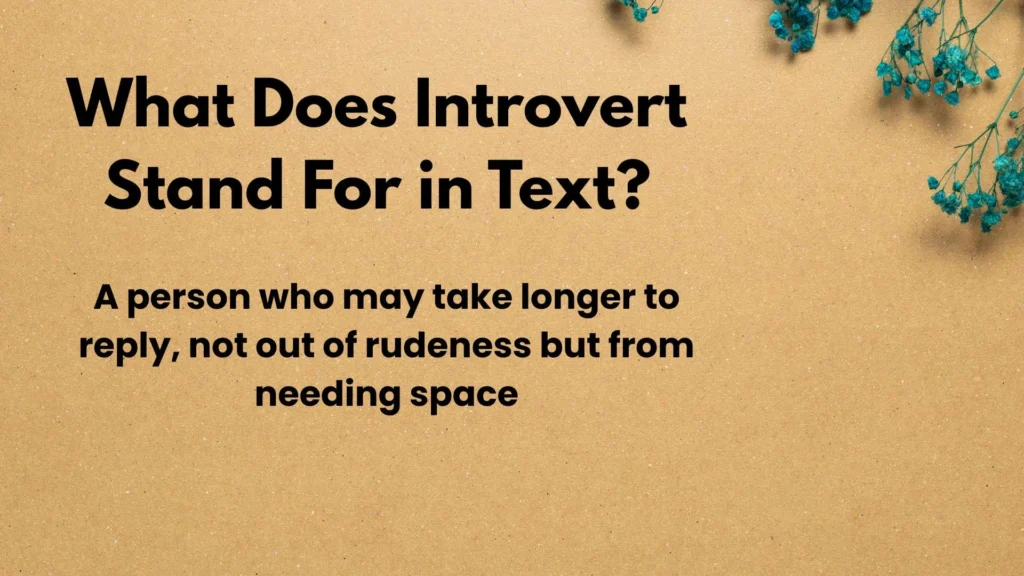
When someone uses the word “introvert” in a text, especially in casual or professional messaging, it often stands for more than just a personality type. It implies:
- Someone who might not enjoy group calls or busy social apps
- A person who may take longer to reply, not out of rudeness but from needing space
- Someone who prefers thought-out conversations instead of quick chatter
- A subtle explanation for needing solitude or being more reserved
So, in a message, if someone says “I’m a bit of an introvert,” it’s usually a way of setting expectations politely and respectfully.
Synonyms and Related Words for Introvert
While “introvert” is the dominant term, there are several synonyms and contextual alternatives that can convey similar meaning depending on tone and setting:
1. Reserved – Used to describe someone who doesn’t readily share personal thoughts or emotions.
- “She’s very reserved in meetings but always delivers strong ideas.”
2. Quiet – A more casual term, sometimes used interchangeably, but can have a negative connotation if misapplied.
- “He’s the quiet type, but really insightful.”
3. Introspective – Highlights the self-reflective nature of an introvert.
- “His introspective nature makes him a great writer.”
4. Reflective – Focused on thoughtfulness, often used in professional settings.
- “We value reflective thinkers in our product design process.”
5. Withdrawn – A more serious or clinical synonym; use carefully.
- “He became withdrawn after the merger, needing time to adjust.”
6. Thoughtful – When used appropriately, this word describes depth and sensitivity.
- “She’s a thoughtful leader—quiet but influential.”
7. Solitary – Emphasizes a preference for being alone.
- “Some creatives produce their best work in solitary settings.”
8. Low-key – Informal and popular in casual conversations.
- “I’m low-key not into big gatherings.”
9. Inward-looking – Reflective, analytical—often used in literature or psychology.
- “His art is deeply inward-looking and emotionally honest.”
10. Private – Suggests discretion and minimal self-disclosure.
- “She’s a private individual who prefers her own space.”
How to Choose the Right Word Based on Tone
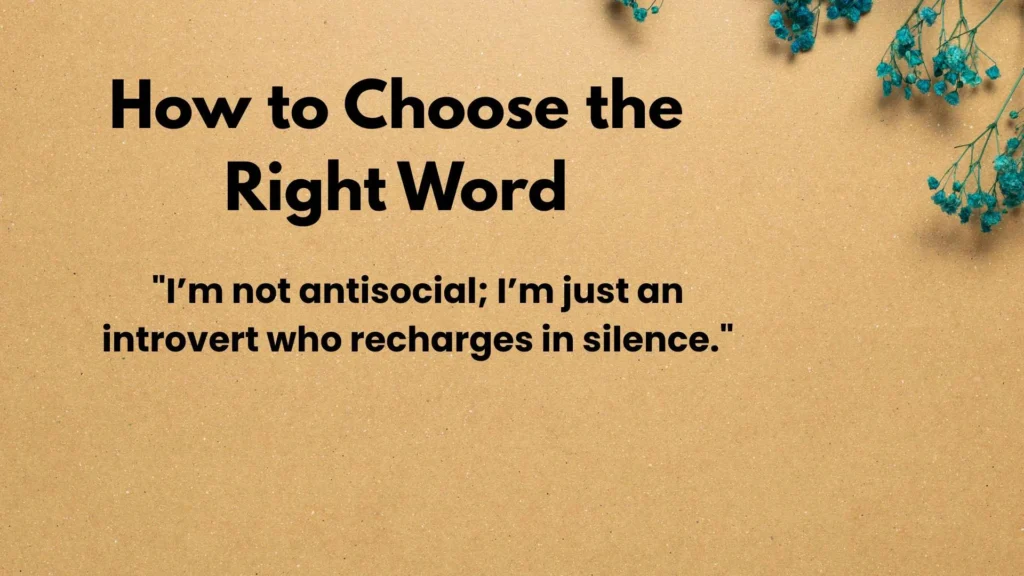
Language is about context. Choosing the best synonym or description for an introvert depends on tone, formality, and intent.
Casual Situations:
Use: low-key, quiet, private
“Yeah, I’m more of a low-key person. I’d rather stay in.”
Polite/Professional Settings:
Use: reserved, introspective, reflective, thoughtful
“She brings a reflective energy to the team, which balances the dynamic well.”
Formal or Academic Writing:
Use: inward-looking, introspective, solitary
“Introverts often demonstrate heightened metacognition due to their introspective tendencies.”
10 Real-Life Example Sentences Using the Word “Introvert”
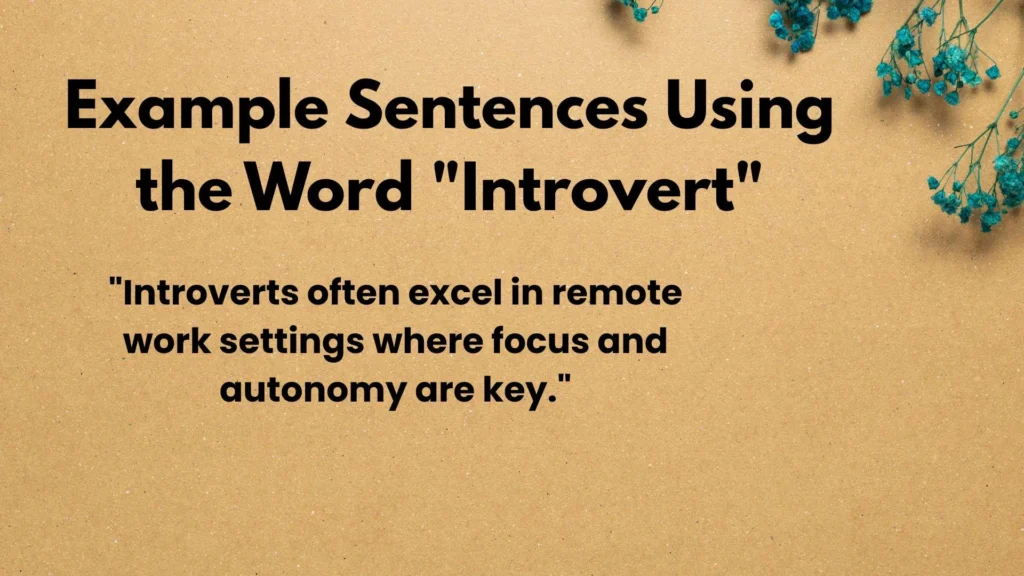
- “As an introvert, I find crowded events overwhelming but enjoy deep one-on-one conversations.”
- “Don’t mistake his silence for disinterest—he’s just a natural introvert.”
- “Being an introvert doesn’t mean you lack social skills; it means you value your energy.”
- “Introverts often excel in remote work settings where focus and autonomy are key.”
- “Her introverted nature helps her listen more and speak with intention.”
- “In group projects, introverts may not be the loudest, but they’re often the most thoughtful contributors.”
- “I’m not antisocial; I’m just an introvert who recharges in silence.”
- “Introverts tend to reflect deeply before acting, making them strong strategists.”
- “The company has started valuing introverted leaders for their calm decision-making.”
- “Even as an introvert, I enjoy connection—just not the chaotic kind.”
Why Understanding Introversion in 2025 Matters More Than Ever
In 2025, remote work, mental wellness awareness, and neurodiverse hiring practices have transformed the workplace. Employers, educators, and peers must recognize the value introverts bring:
- Deep Focus: They thrive in distraction-free environments.
- Empathy: Introverts often exhibit emotional intelligence and empathy.
- Analytical Thinking: Many introverts are strong in strategic planning.
- Creative Depth: Their solitude often leads to profound creativity.
As we evolve socially and technologically, labeling people too simplistically no longer serves anyone. Being an introvert isn’t a weakness—it’s a strength, especially in a world that needs more listeners and thinkers.
Final Thoughts
Understanding the meaning of “introvert” goes beyond a dictionary definition. In 2025, we recognize that introversion is a personality spectrum, not a box. Whether you’re describing yourself, someone else, or writing for clarity in texts or emails, knowing the nuances of this word can improve communication, empathy, and connection.
Don’t use introversion as an excuse or a barrier—instead, see it as a superpower that brings value in any setting.

